Wednesday night’s diversity debate at Wandsworth Council should have been a moment for the borough to affirm its values of inclusion and community. Instead, it became a dispiriting display of how deeply partisanship has infected local politics – where even speeches about unity are delivered as put-downs to the other side.
The most telling moments came from those preparing to leave public life. Like dinner guests who finally speak their minds knowing they’ll never be invited back, they offered glimpses of wisdom earned through years in the chamber. The rest of the room, caught up in their partisan trenches, seemed barely to notice.
The philosopher who came to dinner
Former Conservative, now Independent Councillor Malcolm Grimston, for West Hill, spoke with the kind of raw honesty rarely heard in local politics. Growing up gay under Clause 28, he’d lived through genuine discrimination. By the early 2000s, he’d experienced what he called “possibly the single biggest, most dramatic social revolution of my lifetime” – when society achieved a “benign indifference” to sexuality.
“People were studiedly bored by my sexuality,” he said, adding with characteristic dry humour: “I have to say, sadly, I have to include my husband in that statement.”
But now, he fears, performative diversity politics is creating new divisions. Rainbow flags, rainbow crossings, rainbow doormats – “well-meant, undoubtedly, but just as effective in telling me that I don’t really fit into society as a whole, that I’m in some way fundamentally different.”
His philosophical challenge cut deep: “What on earth does gay community mean? I’ve nothing more in common with another gay person than I do with anybody else in society per se.”
Whether you agree with Grimston or not, here was someone grappling with a genuine question about the nature of belonging. He quoted Martin Luther King’s dream of being judged by character rather than skin colour, warning that identity politics moves us backwards from that ideal.
“I really fear that… the last 20 years of my life may rather resemble the first 20 years, rather than the wonderful golden age in the middle,” he said.
The protester’s farewell
Labour’s Maurice McLeod, giving what he announced would likely be his last speech as a councillor, offered another moment of genuine reflection. A self-described “person of protest” who’d stood on picket lines since the anti-apartheid movement of the 1980s, he defended the Gaza peace camp in Nine Elms with the passion of someone who has nothing left to lose politically.
“Those gatherings and that peace camp weren’t a problem,” McLeod insisted. “They were an expression of love, grief, and solidarity. They were democracy in its purest form.”
He painted the protesters not as troublemakers but as ordinary Wandsworth residents: “pilots and porters, baristas and designers and delivery drivers” – “the same people who keep our hospitals, our schools and our shops running.”
Like Grimston, McLeod was making a deeper point about democracy and belonging. But also like Grimston, his words seemed to float over a chamber more interested in scoring points than engaging with ideas.
The partisan pantomime
The motion itself, proposed by Deputy Leader Kemi Akinola and Councillor Sarmila Varatharaj, condemned the “terrifying rise in anti-migrant words and actions.” A worthy cause, surely. Yet even this became a weapon in the partisan war.
Labour speeches oscillated between genuine feeling and performative politics. Councillor Jessica Lee offered moving testimony about working with refugees in Calais – young people who “wanted to come to the UK, not for money, not for benefits, but for a chance at life.” Here was authentic human experience.
But too often, the debate descended into exactly what Grimston had warned against. Akinola thanked “people of colour, those of faith, and members of the LGBTQ plus community” – the kind of identity checklist that divides while claiming to unite. She spoke of “anti-oppressive practice” – jargon that excludes even as it preaches inclusion.
Even when acknowledging the opposition’s amendment as “well-meaning,” she immediately pivoted to dismissing it as “misdirected,” unable to resist reverting to attack mode rather than genuine dialogue.
Varatharaj delivered passionate rhetoric about migrants being scapegoated, ending with a joke about anti-migrant marchers going for onion bhajis afterward.
But rather than bridge divides with her fellow councillors, she echoed her leader’s partisan attacks, speaking of “vicious lies of fascist politicians” and “far-right nationalism” in a debate where Councillor Hogg had just finished blurring the line between the Conservatives in the chamber and Reform UK. The irony was stark: a motion calling for unity and defending democracy had become yet another vehicle for tribal point-scoring. Here was the very failure the motion purported to address – politicians unable to come together even while debating the necessity of doing exactly that.
The Conservatives were no better. Daniel Hamilton spoke thoughtfully about the difference between multiethnicity (which he celebrated) and multiculturalism (about which he had reservations). “We are one Wandsworth,” he declared – while simultaneously trying to amend Labour’s motion to include concerns about antisemitism that his opponents had overlooked.
Tom Pridham warned about threats to “diversity of speech and thought” from an administration that limits scrutiny. A fair point, perhaps, but delivered as ammunition rather than invitation to dialogue.

The Instagram peacocks and intellectual lightweights
What the debate revealed most starkly was the quality – or lack thereof – of those making decisions for Wandsworth’s 330,000 residents. The chamber contains an odd mix: the genuinely driven, the ideologically possessed, the small and petty, and what one might charitably call the Instagram generation – more interested in being seen to care than actually caring.
Some councillors read prepared speeches that could have been written by ChatGPT, full of approved phraseology signifying nothing. Others jumped up to make partisan jibes disguised as interventions. The usual suspects performed their usual roles: the virtue signallers signalling, the culture warriors warring, the moderates being drowned out by both.
When, later, Councillor Emmeline Owens delivered a lengthy discourse connecting violence against women to Labour’s policing failures – complete with statistics about knife crime rising “86% under this London Labour Mayor” – it felt less like genuine concern for women’s safety than another round in the endless political boxing match.
The contradictions mount
The same meeting debated a Conservative motion demanding removal of the Gaza peace camp in Nine Elms. Here, the contradictions became almost farcical.
Labour councillors who had just preached about diversity and inclusion now defended a protest camp that Conservatives claimed featured antisemitic graffiti and support for “proscribed terrorist organisations.” The Conservatives, meanwhile, demanded the camp’s removal while simultaneously championing free speech and democracy.
Neither side seemed to notice the irony. Labour celebrated visible, disruptive protest as democratic expression while enforcing conformity in the chamber. Conservatives called for order on the streets while claiming to defend diversity of thought.
Housing Cabinet Member Aydin Dikerdem accused his opponents of “lying” about housing figures, getting so heated that he promised to demand a retraction at the next meeting. The mayor had to intervene. This is what passes for debate about the future of thousands of homes.
The missed opportunity
What’s most depressing about Wednesday’s meeting isn’t the disagreement – democracy thrives on disagreement. It’s that no one really engaged with the deeper questions raised.
No Labour councillor addressed Grimston’s challenge about whether celebration creates exclusion. No Conservative grappled with Lee’s point about refugees seeking not handouts but humanity. The two sides talked past each other, at each other, about each other – but never really with each other.
When it came to voting, the chamber split on entirely predictable lines. The diversity motion passed 30-16. The Nine Elms protest motion lost 18-29. Grimston, notably, abstained on the diversity motion – he’d acknowledged it contained “many good things” but couldn’t support the identity politics underlying it.
What they’re really like
Those who follow Wandsworth Council already know what this debate confirmed: the people making decisions that affect hundreds of thousands of residents are a peculiar bunch. Most are driven by something – ideology, ambition, genuine care, or sometimes just the desire to be important. Many hold strong views, often stronger than their grasp of the issues.
Some – fewer than we’d hope – genuinely want to build up and support their communities. They can be found on both sides, usually quieter than their colleagues, occasionally breaking through with moments of real insight or compassion.
Others are exactly what Grimston warned about: dividing while imagining they’re including, preaching unity while practising warfare, more interested in being seen as good people than in doing good.
The wisdom of the departing
Perhaps it takes impending departure to speak truth in politics. Grimston, politically independent and intellectually fearless, could say what party loyalists couldn’t. McLeod, leaving the council, could defend protesters without calculating electoral consequences.
Their speeches suggested what local democracy could be: thoughtful people with different philosophies arguing in good faith about how to build a better community. Instead, we get what we saw Wednesday night: a dispiriting spectacle of point-scoring disguised as principle.
“I really fear that… the last 20 years of my life may rather resemble the first 20 years,” Grimston had warned, speaking of his fear that progress on acceptance was reversing.
In a chamber where even discussions about bringing people together become weapons in the partisan war, we’re all moving backwards.
If councillors can’t find common ground on diversity and inclusion, what hope is there for housing, transport, or any of the other issues that actually affect residents’ daily lives?
We can only hope that somewhere in that chamber, among the peacocks and the partisans, someone was actually listening to the wisdom of those preparing to leave.
The October 22nd Wandsworth Council meeting can be viewed in full on the council’s webcast service. The vote on the diversity motion was 30 for, 16 against, with notable abstentions including Councillor Grimston. The Nine Elms protest motion was defeated 18-29.

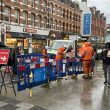
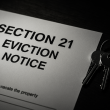

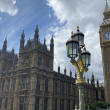


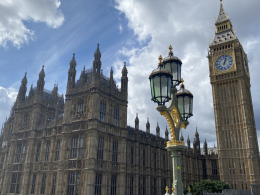
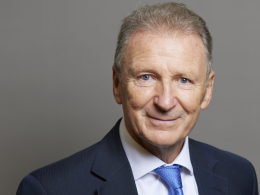

Lest there be any confusion I am not ‘preparing to leave public life’ and at present intend to stand again in next year’s election!
Having re-read the piece, we can see the unintended implication. Thanks for clarifying. Next time (hopefully there isn’t a next time) – a direct line: editor@putney.news.
Thanks for this excellent report. I think you have articulated exactly why most people are turned off by politics. Effective political action is how we negotiate our disagreements and the boundaries of our beliefs. So much of what we see is the exploitation of those sectional interests. Keep up the good work